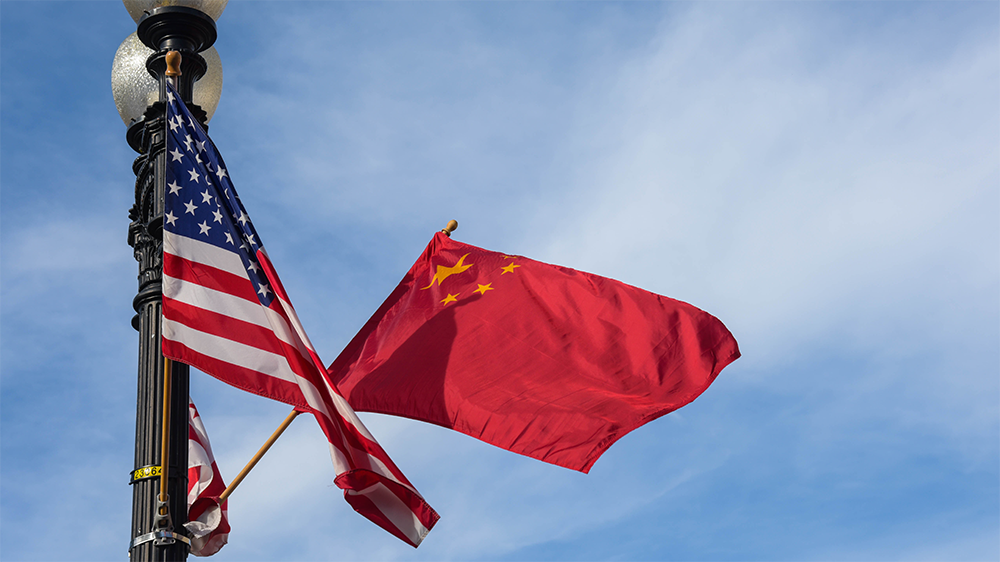Filoli summit sends a positive signal for military stability
By Liu Qiang | China Daily | Updated: 2023-11-24 07:24

The constructive and productive discussions the presidents of China and the United States held when they met at the Filoli Estate in San Francisco on Nov 15 have put a brake on the downward slide in Sino-US relations.
The positive signals include agreements on the importance of bilateral relations for the world, the necessity for improvement of bilateral relations, reiteration of the bottom line that the US does not support "Taiwan independence", and willingness to resume military-to-military contacts for crisis management.
The consensus on military risk control is a timely achievement at a time when disputes have been growing between China and the US in recent years.
The misconduct of the US on the Taiwan question, especially the provocative visit by then US House of Representatives speaker Nancy Pelosi to the island last year, undermined China-US relations by bringing military communication to a halt.
It was a critical step in the stabilization of China-US relations that the top leaders could reach agreements on military issues, one of the most sensitive issues in state-to-state relations, including high-level military communication, the working meeting between defense ministries, the meeting for China-US maritime military security consultation mechanism, and the dialogue between leaders of two militaries' theater commands.
First, the meeting gave a green light to ensure military strategic communication between China and the US. When Washington promoted the "Indo-Pacific "strategy to create a strategic deterrence and blockage against China and bilateral military communication decreased, the risk of strategic misjudgment on major military and security issues surged between the two countries.
The resumption of high-level military communication can promote consultations on key issues and eliminate misunderstandings, including letting specific functional agencies of defense systems of the two countries undertake some specific issues to improve the efficiency in dealing with problems on the strategic level.
Second, the meeting opened channels to prevent miscalculations that may lead to military conflicts. In recent years, the US and its allies step up their military presence in the East China Sea, South China Sea under the so-called banner of "Indo-Pacific" strategy. Such aggressive acts force China to make military responses to safeguard national security interests, while inevitably increasing maritime security issues.
Due to the differences in the command and control mechanisms of the Chinese and US militaries, including the rules of engagement, the two sides can hardly eliminate misjudgment, which can easily lead to military crises at sea without proper mechanisms of maritime military security consultation and crisis management.
Third, the meeting created a channel for the real-time address of specific problems at the tactical level. As the two largest economies in the world, China and the US have a gap in overall national strength but the gap in the military field is narrowing so the two countries will try very hard to avoid a full-scale military conflict. However, the possibility of military frictions in some specific areas cannot be ruled out as long as the two sides maintain a poor communication mechanism, which is likely to cause military miscalculations.
Therefore, high-level exchanges between China and the US, including leaders of theater commands, mean the two countries intend to implement issues from the strategic level to the tactical level or overall levels. The theater command is the most important combat unit for carrying out specific military tasks on the battlefield. Communication between theater commands is the best way to deal with problems between the most direct parties on the scene and is conducive to resolving the crisis in the first place.
However, in a turbulent world, factors that can impact international relations have increased and become complicated. Despite their contradictions, China and the US, two major powers in the world, should return to holding smooth dialogues. The competition between China and the US should be benign rather than malignant.
For this purpose, Washington needs to convert or adjust its strategic mindset about China and stop viewing China's development with a Cold War mentality and the outdated historical experience of the "Thucydides Trap". One of the most important approaches is the US deepening its understanding of the harmonious connotation of Chinese strategic culture. When China seeks development, it is willing to be an impetus for global development and peace so that the co-development will benefit the cooperative countries.
More importantly, if the US does not take the Taiwan question as a bargaining chip to challenge China's bottom line and truly abides by the one-China principle, China and the US can prevent major conflicts. This will not only benefit the development of the two countries but also serve as a prerequisite and guarantee for regional and world peace and development.
The author is the director of the academic council and a senior research fellow at the Shanghai Center for RimPac Strategic and International Studies. The views don't necessarily represent those of China Daily.
If you have a specific expertise, or would like to share your thought about our stories, then send us your writings at opinion@chinadaily.com.cn, and comment@chinadaily.com.cn.
























